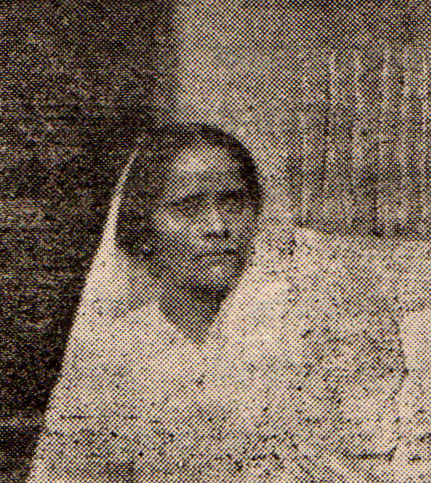 HEMALATA
BARUAH
HEMALATA
BARUAH
Hemalata Baruah was a woman of many parts .She stood
out as a quintessential modern Assamese woman, able to strike a fine
balance between personal obligations with the societal ones with
consummate ease. In an eventful , life, she donned the many roles of
writer, a social worker, an organizer, a home � maker par excellence, a
food enthusiast, a passionate weaver and many more .
She was born to Ramakanta Barkakati and Pabitri Barkakatri in Charing,
town of upper Assam. Her father was a well known literature, who along
with the three others, was credited with the first Assamese translation of
Shakespeare�s Comedy of Errors. She was brought up in Kolkata, where her
father worked. The Calcutta of 1900�s was bustling with the activities
related to reforms in the field education. The Western influence was
gradually percolating the classrooms of schools, colleges and
Universities. Hamalata Baruah�s liberal ethos can be attributed to this
influence during her students� days in Calcutta. She couldn�t her
education due to her early marriage to Bhabani Prasad baruah at the age of
sixteen. However, her quest for knowledge did not diminish and she went on
to harbour a life long passion for literature. Her siblings, Sudhalata,
Sukhalata and Shantilata, were, however able to achieve much academic
success. Sudhalata was to top her class in M.A honors with the first class
and later went on to become the principal of Crosthwaite College in
Allahabad. When Sudhalata Passed away in 1928, Professor Rai Bahadur
Dinesh Chandra Sen. penned a book named "A memoir of Sudhalata Duarah" to
commemorate her academic contributions. Sukhalata, after completion oh her
MA went on to teach in different colleges of Delhi and Lahore. Shantilata,
another sister of Hemalata was the Principal of Delhi�s Lady Irwin College
for eleven years .Shantilata later embraced a spiritual life and came to
be known as Swami Shanta Nanda. She authorized a book for children named
Aamar Bapuji during these days. The academic pursuits of these three
sisters of Hemalata need to be examined in the context of the prevalent
conditions for Women�s Education at that period, the early 20th
century. Their contributions were undoubtedly significant in that they
were oriented towards strengthening the fabric of Women�s Education in
India during those times.
Although Hemalata was not able to complete her
education, she devoted her energies to social work and women�s empowerment
activities. She was actively involved in the organizations who worked for
greater emancipation of women at Sivsagar and also in all parts of Assam.
With the inspiration of her aunt Kamlaya kakati, she worked Mahila Samitis
and Sipini Bharals. Weaving was her favorite activity and she devoted a
lot of her time to teach youngsters to weave and understand the finer
nuances of the activity. Her diligence and knowledge made her stand apart.
A decade of her lifetime was fully dedicated to the noble cause of the
heartier welfare of women. An idealist whose perspective was sustained by
an acute understanding of the world, Hemalata was able to leave her mark
and gain prominence in the society. She was revered by her peers and the
members of new generation alike. As the chairman of the reception
committee, she ensure the success of a grand conference of Women held at
Sivasagar in the year 1955 with her organizational skills for which she is
still commended. In marriages and other religious functions, her advice
was indispensable for the people of Sivasagar.
Hemalata also made some significant contribution to
Assamese Literature. She wrote two books named Namati Sarai and Grihinir
Sararthi.
Namati Sarai is a collection of devotional songs in the
praise of deities like Krishna, Shiva, Durga and so on. This book was
written to document the oral songs, which otherwise, she thought would be
lost to the younger generation. Grihinir Sarathi is a cook book where
different recipes ranging from kahudi kharali to korma kofta. The book
also contains the rules and rituals to be adhered to in marriages and
other religious and traditional functions. Her easy style of writing makes
for easy learning. This type of books is a rare contribution to this genre
in Assamese Literature.
As a person, Hemalata was a strong woman who remained
unperturbed by the vagaries of a crisis, which she was to face in the
early days of her marriage with the sudden demise of her husband. The
immediate responsibility of her husband and children fell upon her
shoulders. She was able to deal with this sudden turn of events with
patience and determination. She reposed her faith in god and nurtured her
children with affection care. Her eldest son, Girija Prasad Baruah was not
only a renowned tea planter but also chairman of Sivasagar Municipality
Board and an active social worker. Her second son, Bijoy Prasad Baruah is
also a Tea Planter and a retired Indian Administrative service officer.
Her third son, Lakhi Prasad Baruah is atop ranking officer Refineries
Limited. Her three daughters were married to Krishnakanta Baruah of
Guwahati, Dr. Jatin Baruah of Golaghat and Krishna anta Duruah
respectively. All her children were successful in their own ways and well
settled in life.
Hemalata Baruah was an amiable lady who lived a full
life she much indulged in Garroting and thought her family members the
value of time. The lessons from her life will continue to guide and
inspire new generations. A perfect embodiment of a modern woman, she set
high standards for herself in personal and public life the essence of
which is relevant even in the 21st century. In emulating her,
the women of the future will lend her posterity and the memories of her
enduring life would linger on forever.
